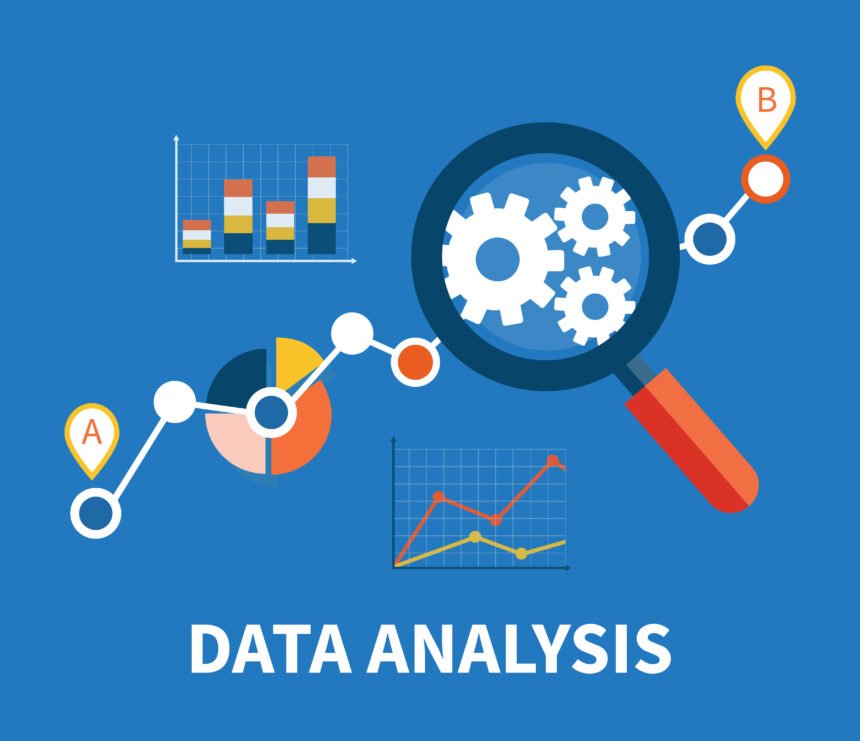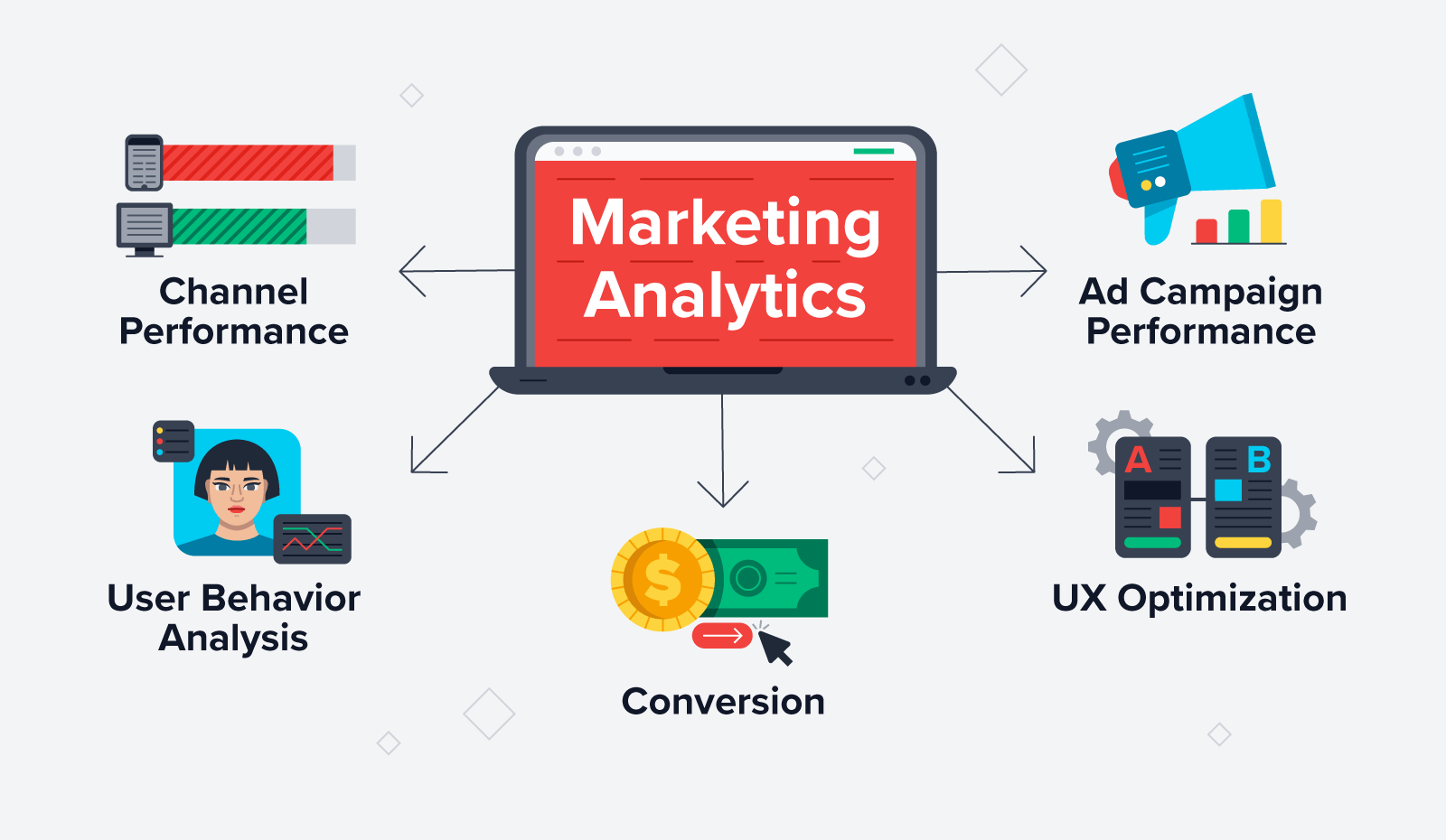Increase Performance and Success With Information Analytics
In today's data-driven landscape, companies are progressively identifying the essential function of data analytics in boosting functional efficiency and profitability. By methodically assessing information, organizations can discover important understandings that notify strategic choices, streamline procedures, and dressmaker client experiences.
Recognizing Data Analytics
In today's data-driven landscape, understanding data analytics is essential for companies intending to enhance operational effectiveness and drive profitability. Information analytics includes the systematic computational evaluation of information collections to discover patterns, connections, and insights that notify decision-making. By employing various strategies, such as statistical analysis, maker learning, and anticipating modeling, companies can change raw data right into actionable knowledge.
The procedure commonly begins with data collection, where pertinent info is collected from several sources, consisting of transactional data sources, client interactions, and market fads. This data is after that cleaned and organized to guarantee accuracy and consistency. When the data is prepared, analytical devices and software are utilized to visualize the info and discover, making it possible for stakeholders to recognize trends and anomalies.
Inevitably, recognizing information analytics encourages organizations to make educated decisions based on empirical proof instead of instinct. It promotes targeted strategies that can maximize source allotment, improve consumer contentment, and enhance general efficiency. As services significantly identify the value of data-driven insights, a solid grip of information analytics ends up being an essential proficiency for groups and leaders alike, placing them for continual success in an affordable setting.

Secret Benefits for Businesses
Services that leverage information analytics can unlock a wide variety of benefits that substantially enhance their procedures and profitability. Among the primary benefits is enhanced decision-making. Information analytics offers workable insights stemmed from real-time information, enabling organizations to make enlightened options that straighten with market demands and customer preferences.

In addition, information analytics fosters improved client experiences. By comprehending consumer actions and choices, companies can customize their offerings, causing raised contentment and loyalty. This customized method typically causes greater conversion prices and repeat service.
In addition, information analytics makes it possible for organizations to determine emerging trends and opportunities. By staying in advance of the curve, organizations can profit from new markets and innovations before their rivals.
Applying Data-Driven Approaches
Effective implementation of data-driven strategies needs a thorough understanding of both organizational objectives and offered data resources. Organizations should initially define their objectives clearly, guaranteeing positioning between information campaigns and tactical purposes. This clearness enables groups to focus on pertinent metrics and insights that drive decision-making.
Top notch data is vital for exact evaluation, as bad data can why not look here lead to misdirected approaches and thrown away resources - Analytics. Organizations should develop processes for information collection, cleansing, and management to maintain data stability.
In addition, promoting a data-driven culture is critical. Employees in any way levels ought to be motivated to utilize data in their everyday procedures. Educating workshops and programs can improve data literacy, empowering team to make enlightened choices based upon logical understandings.
Devices and Technologies Overview
A robust suite of modern technologies and devices is important for organizations aiming to harness the full capacity of data analytics. These tools promote the collection, processing, and visualization of information, making it possible see this for businesses to derive actionable insights.
At the fundamental level, information administration platforms such as SQL data sources and NoSQL systems provide efficient information storage space and access capacities. For information handling and analysis, programs languages like Python and R, along with frameworks such as Apache Spark, allow complex estimations and artificial intelligence applications.
Visualization devices, including Tableau you could try these out and Power BI, transform raw information into intuitive visual layouts, making insights accessible to stakeholders in all levels. In addition, cloud-based systems like Google Cloud and AWS offer scalable storage space and handling solutions, accommodating the expanding volumes of data companies run into.
For advanced analytics, predictive modeling and AI-driven services are increasingly adopted, allowing business to forecast trends and boost decision-making procedures. Integrating these tools right into existing workflows is vital; companies that efficiently leverage this technology can substantially boost operational efficiency and drive earnings. Therefore, buying the right devices and technologies is a calculated crucial for any kind of data-driven company.
Situation Studies of Success
Leveraging information analytics has actually led various companies to attain exceptional renovations in efficiency and success. One noteworthy situation is a huge retail chain that executed predictive analytics to maximize supply administration. By analyzing historical sales data and customer patterns, the company decreased excess inventory by 30%, causing considerable expense financial savings and boosted cash money circulation.
One more instance can be discovered in the manufacturing market, where a leading auto supplier made use of data analytics to improve its production procedures. By monitoring maker efficiency in real-time, the company identified inefficiencies and traffic jams, leading to a 20% boost in overall equipment effectiveness (OEE) This not just enhanced manufacturing rates but also minimized downtime and maintenance expenses.

These study illustrate how data analytics can drive calculated decision-making, optimize processes, and inevitably improve both effectiveness and profitability across various fields.
Final Thought
In conclusion, the assimilation of information analytics right into organization operations offers considerable possibilities for improving efficiency and profitability. By methodically analyzing data, companies can determine inefficiencies, enhance client experiences, and make notified decisions. The adoption of anticipating modeling and real-time tracking even more allows organizations to stay in advance of arising fads and assign sources efficiently. Inevitably, the critical implementation of data-driven techniques promotes sustained affordable benefits and drives substantial renovations in operational performance and financial results.
In today's data-driven landscape, understanding data analytics is vital for companies aiming to enhance operational effectiveness and drive earnings. Information analytics entails the organized computational evaluation of data sets to uncover patterns, correlations, and understandings that notify decision-making. Information analytics offers actionable understandings derived from real-time data, allowing organizations to make informed selections that line up with market demands and consumer choices.
High-grade information is crucial for exact analysis, as poor data can lead to misdirected strategies and wasted sources. Organizations needs to establish processes for data collection, cleansing, and management to maintain information honesty.